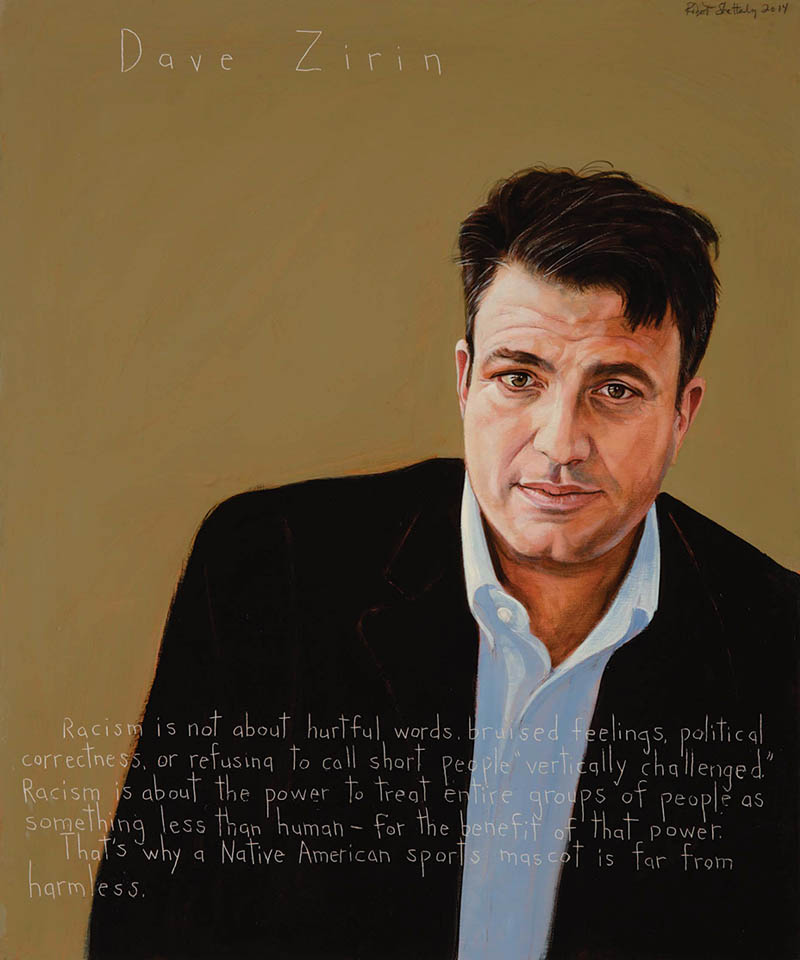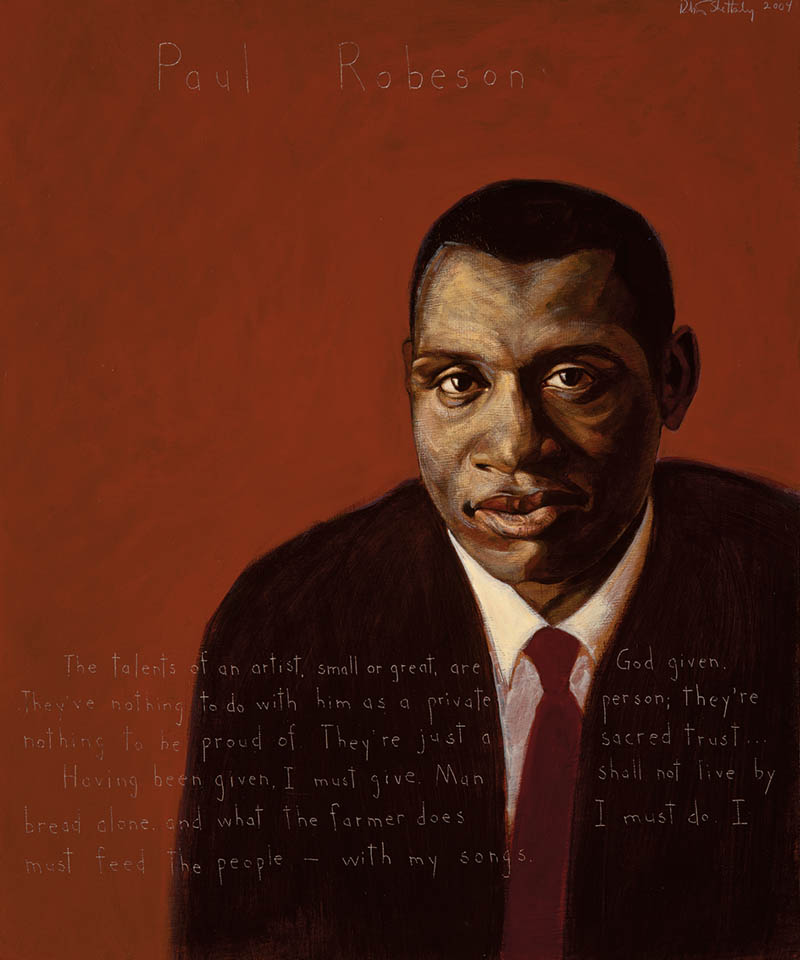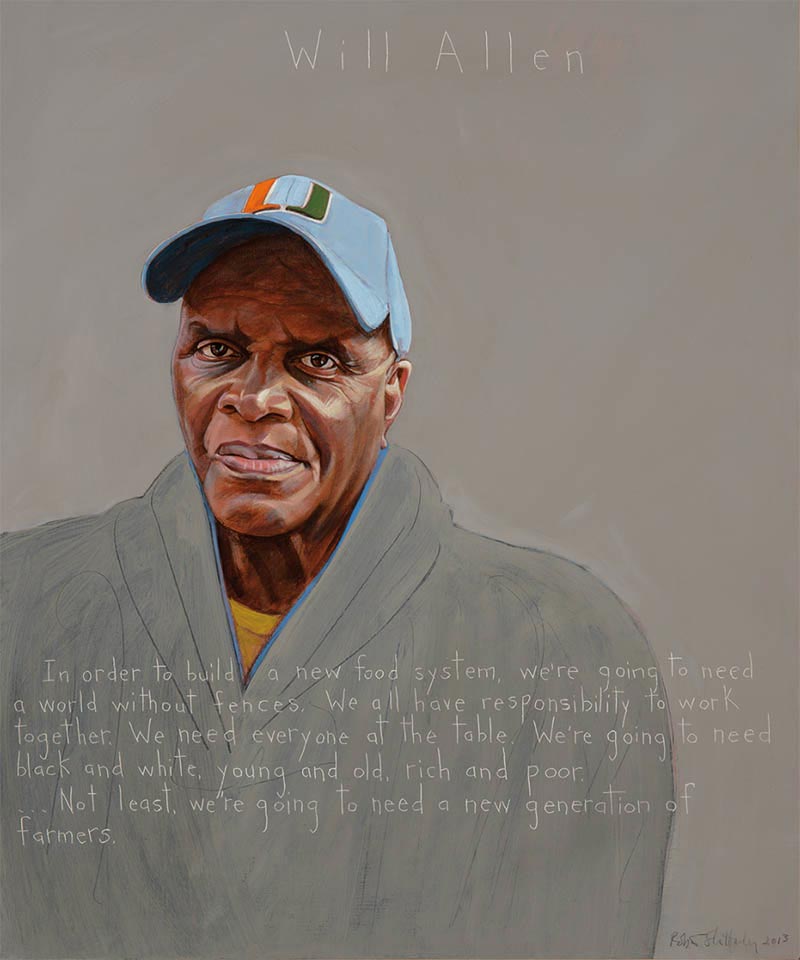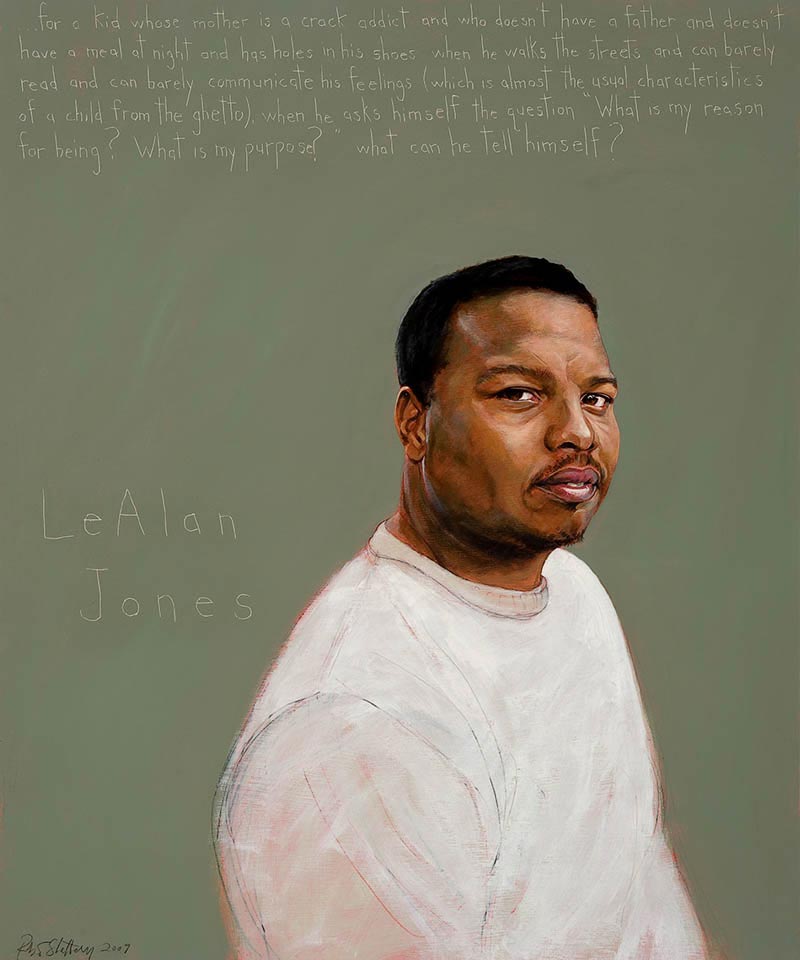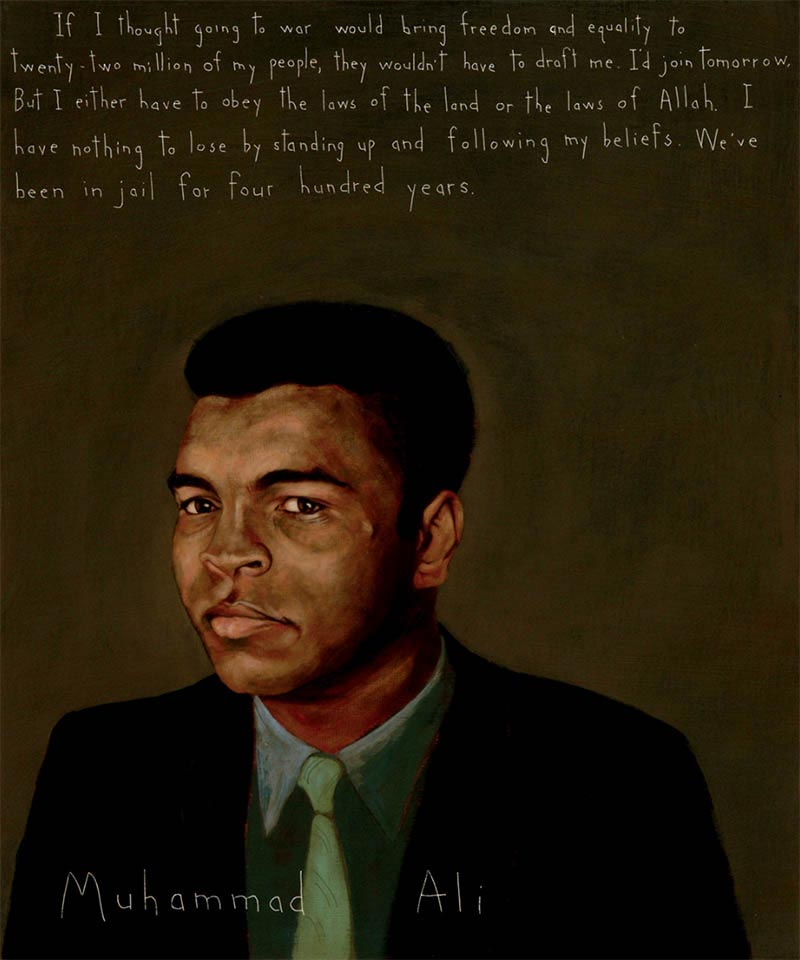
Muhammad Ali
Boxer : b. 1942 - 2016
“If I thought going to war would bring freedom and equality to twenty-two million of my people, they wouldn’t have to draft me. I’d join tomorrow. But I either have to obey the laws of the land or the laws of Allah. I have nothing to lose by standing up and following my beliefs. We’ve been in jail for four hundred years.”
Biography
Highlight 1
When choosing its top athletes of the twentieth century, the ESPN network placed Muhammad Ali at number three. The fighter was born Cassius Marcellus Clay Jr. in Louisville, Kentucky. Taught to box at age twelve, he won 100 of 108 amateur fights and several national titles. At age eighteen, he added a gold medal from the 1960 Summer Olympics. Back home in Kentucky, however, when a restaurant refused to serve him because of his race, Clay took the Olympic medal from around his neck and threw it into the Ohio River.
The handsome and skillful Clay brought style and verbal wit to professional boxing. Both quick and powerful, he could “float like a butterfly and sting like a bee.” In his twentieth match, fighting as the underdog, he became the world heavyweight champion. A surprised nation was further shocked when Clay announced shortly thereafter that he had joined the Nation of Islam and taken a Muslim name, Muhammad Ali.
By March 1967, his record stood at 29-0. One month later, he refused induction into the U.S. Army during the Vietnam War, claiming conscientious objector status. “I ain’t got no quarrel with them Viet Cong,” he said, adding, “No Viet Cong ever called me nigger.” Condemned as unpatriotic and cowardly, Ali was stripped of his title and his boxing license. He was tried, found guilty and sentenced to five years in prison. Released on appeal, he waited until 1971 for the U.S. Supreme Court to overturn the verdict.
Despite these years of inactivity, Ali ended his professional career with a record of fifty-six wins and five losses. Revered instead of scorned, he became the first boxer to win—and hold—the heavyweight championship three times (1964-1967, 1974-1978 and 1978-1979). But he stayed too long in the ring and lost three of his last four fights before retiring in 1981. Shortly after that, he was diagnosed with Parkinson’s disease.
Ali was slowed by the disease but not defeated. Three decades after America reviled him for his religious and political beliefs, he was asked to light the Olympic Torch at the opening of the 1996 Atlanta games. In his later years, Ali also worked alongside actor Michael J. Fox to raise awareness about and fund research on Parkinson’s disease. In October 2003, the editor of Esquire magazine wrote that “he, like only a very few Americans, has existed for nearly his entire life at that rare nexus of celebrity, accomplishment, and infamy that makes one an American icon.” Ali died in 2016 at the age of seventy-four.
Related Portraits
Programs
Americans Who Tell the Truth (AWTT) offers a variety of ways to engage with its portraits and portrait subjects. Host an exhibit, use our free lesson plans and educational programs, or engage with a member of the AWTT team or portrait subjects.

Education
AWTT has educational materials and lesson plans that ask students to grapple with truth, justice, and freedom.

Exhibits & Community Engagement
AWTT encourages community engagement programs and exhibits accompanied by public events that stimulate dialogue around citizenship, education, and activism.
